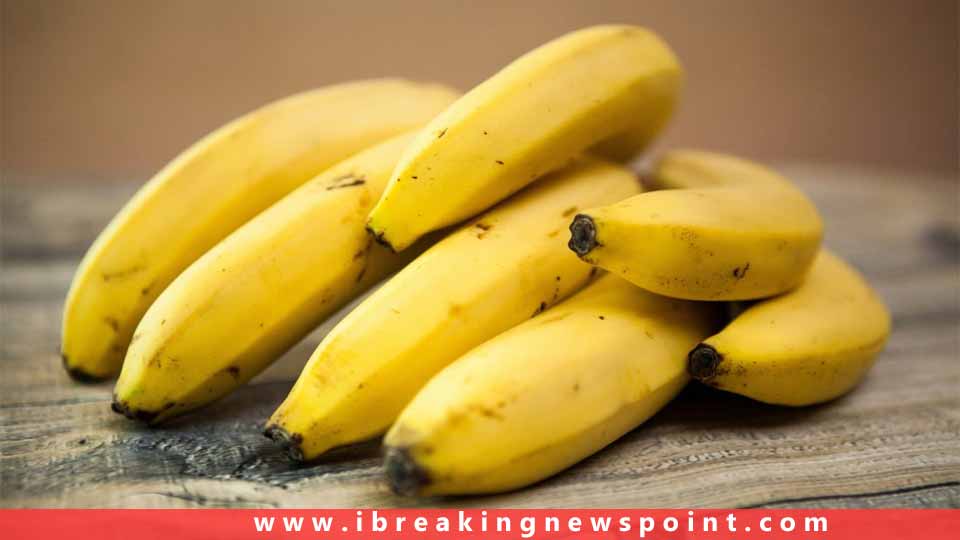
Here We Have Strong Answer Of How Many Carbs, Calories, Beneficial Nutrient, Health Benefits A Banana Have?
A banana is an edible fruit that owns extremely healthy and several important nutrients being one of the most well-liked fruits in the world. It is also a botanically a berry and produced by a number of kinds of large herbaceous flowering plants in the genus Musa.

Banana is also considered one of the most influential fruits for workouts having an impressive amount of calories and carbs. Even though it is being cooked in some countries possibly called “plantains”, differentiating them from dessert bananas.
There are so many who better knows that how many calories, carbs and other nutrients facts banana has, but some don’t have an idea about its nutrients. For them, we designed this article to let them know about it deeply.
Banana is mainly composed of carbs that enclose upright amounts of some antioxidants, vitamins, and minerals, while vitamin C, catechin, potassium, and resistant starch are part of its healthy nutrients.
How Many Calories Are A Banana Has? In Terms of Various Sizes;
Bananas with diverse sizes include differing amounts of calories those are explained below highlighting all kinds of size; nonetheless, a medium-sized banana carries 105 calories, on average.
Small: 6–7 inches, 101 grams (90 calories)
Extra small: less than 6 inches, 81 grams (72 calories)
Medium: 7–8 inches, 118 grams (105 calories)
Large: 8–9 inches, 136 grams (121 calories)
Extra-large: 9 inches or longer, 152 grams (135 calories)
Mashed: 1 cup, 225 grams (200 calories)
Sliced: 1 cup, 150 grams (134 calories)
Now a question arises, how you can get the banana you are going to eat, holds what size, so in the answer, we will suggest you that an average-sized banana consists of nearly 100 calories.
Special Note: Banana’s 93% calories derived from carbs, 4% from protein and 3% from fat. Nevertheless, an average-sized banana can deliver an estimate 100 calories, but the bananas range of calories is reported to be from 72–135.
How Many Carbs A Banana Has?
As we have explained above the Banana is composed of water and carbs, so they can design their required amount of carbs content reading below;
Check carb content of standard banana sizes and amounts:
Small: 6–7 inches, 101 grams (23 grams)
Extra small: less than 6 inches, 81 grams (19 grams)
Medium: 7–8 inches, 118 grams (27 grams)
Large: 8–9 inches, 136 grams (31 grams)
Extra-large: 9 inches or longer, 152 grams (35 grams)
Mashed: 1 cup, 225 grams (51 grams)
Sliced: 1 cup, 150 grams (34 grams)
Special Note: Bananas also have 2-4 grams of fiber that can be different in terms of sizes.
Bananas also contain depending on the size. You can deduct 2-4 grams if you want to attain “net” carb content which is actually like this, total carbs – fiber=net carbs.
In addition, Bananas carbs content can also be dissimilar in terms of its ripeness. On the other hand, ripe bananas hold more digestible carbs as compared to green or unripe.
Green or Unripe Bananas With More Resistant Starch
Generally speaking, carbs are crucial nutrients in bananas which can be in different content significantly during ripening.
Unripe bananas carry high amounts of starch, and some of that starch is resistant starch. Nonetheless, banana’s starch is converted to sugar in the process of ripening, so that yellow bananas incorporate very low resistant starch than green ones.
If truth be told, the resistant starch content of a fully ripe banana is fewer than 1%, while the resistant starch is a type of hard to digest carbohydrate that runs off digestion and functions like fiber in the body.
It comes to the colon undigested, where it provides for friendly gut bacteria. The process of gases and short-chain fatty acids (SCFA) production starts at what time the bacteria digest resistant starches, though those are very important for digestive health.
The cells rapidly absorb nearly 95% of these SCFA in the colon and utilized by the body for energy.
However, the resistant starches will not yield as several calories as usual carbs throughout digestion, although they perhaps transformed into SCFA’s that make available calories afterward. Commonly green and yellow bananas contain almost the same amounts of calories in the end.
Special Note:
Unripe bananas offer large amounts of resistant starch which breaks out digestion and nourishes the friendly bacteria in the gut that plays a crucial role in the production of short-chain fatty acids.
Numerous Other Beneficial Nutrients Of Bananas;
Bananas don’t include only carbs and calories even high amounts of more than a few vitamins and minerals.
One medium-sized banana contains:
Vitamin B6: 22% of the RDI.
Folate: 6% of the RDI.
Vitamin C: 17% of the RDI.
Manganese: 16% of the RDI.
Riboflavin (vitamin B2): 5% of the RDI.
Potassium: 12% of the RDI.
Magnesium: 8% of the RDI.
Fiber: 3.1 grams.
Copper: 5% of the RDI.
So that in terms of taste and nutrition bananas are great and can be used as a low-calorie snack bringing healthy effects.
Special Note:
Bananas comprise high-quality amounts of vitamin B6, manganese, fiber, vitamin C, potassium and copper.
Health Benefits Of Bananas
Bananas contain Potassium which is too good for your blood pressure and heart health.
If you are looking for vitamin B6 from fruits, so the Bananas are one of those sources.
Manganese can be achieved from bananas for good health of your skin
Bananas are among the fruits that can provide impressive energy that helps to reduce fats and cholesterol.
Bananas are highly regarded sources of vitamin C
These can help digestion and aid beat gastrointestinal issues
Bananas Facts
By and large, bananas offer between 19-35 grams of carbs, and between 72 to 135 calories but it is all about their size variations. Nonetheless, 100 calories and 25 grams of carbs are normally discovered in an average-sized banana.